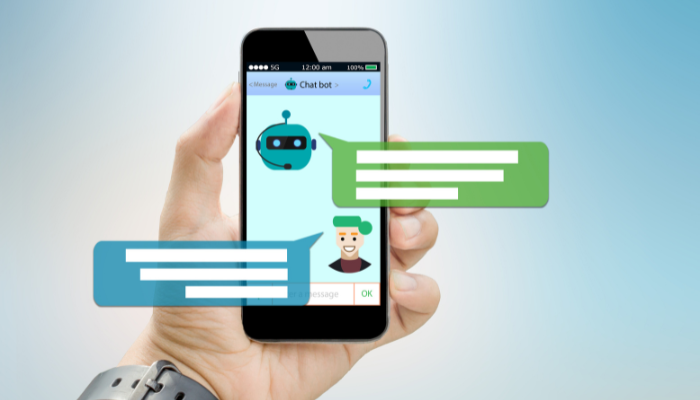Healthcare chatbots are quickly becoming a game-changer in the healthcare industry, providing patients with quick and convenient access to health information, as well as streamlined appointment scheduling and medication management. With the increasing demand for these digital healthcare solutions, the global healthcare chatbot market is experiencing significant growth.
According to a report by Grand View Research, the market is expected to reach $967.9 million by 2025, growing at a staggering CAGR of 24.1% from 2020 to 2025. This growth indicates a growing demand for healthcare chatbots and the potential for further expansion in the industry.
The increasing adoption of healthcare chatbots highlights the potential for these technologies to revolutionize the way patients receive and manage their healthcare, making it more accessible, convenient, and effective. In this article, we’ll explore seven ways healthcare chatbots are disrupting the industry.
What are the 7 Key benefits of Chatbots in the Healthcare Industry?
As the healthcare industry continues to evolve and adopt new technologies, chatbots are playing an increasingly important role in delivering better care and improving health outcomes.
These digital tools have the potential to greatly enhance the quality of care for patients and improve the overall efficiency of the healthcare system. Let’s take a closer look at the key benefits of chatbots in healthcare.
- Improved Access to Health Information: One of the main benefits of healthcare chatbots is their ability to provide patients with quick and easy access to health information. With the help of a chatbot, patients can ask questions and receive answers at any time of day, without having to wait for a doctor or nurse to be available. This is especially important for those in remote or underserved areas who may not have easy access to healthcare services.
- Streamlined Appointment Scheduling: Chatbots can also be used to schedule appointments with healthcare providers, reducing the time and effort required to schedule a visit. This can help to improve patient satisfaction and increase the efficiency of the healthcare system. Healthcare IT services can take advantage of this trend by developing chatbot-powered apps for appointment scheduling.
- Medication Management: Ai chatbot development can be a valuable tool for managing medications, reminding patients when it’s time to take their next dose, providing information about potential side effects, and helping to track their adherence to their medication regimen.
- Improved Symptom Tracking: Chatbots can also be used to track symptoms and monitor health, providing personalized health recommendations based on symptoms and medical history. This can help patients to manage their conditions more effectively and receive prompt treatment if necessary, improving health outcomes and reducing the burden on healthcare providers.
- Enhanced Communication with Healthcare Providers: Chatbots can also be used to communicate with healthcare providers, allowing patients to ask questions, receive advice, and get updates on their conditions without having to visit a doctor in person. This can improve the overall quality of care and reduce the burden on healthcare providers, who can use their time more effectively to focus on other tasks.
- Increased Patient Engagement: Chatbots can also be used to engage patients in their own healthcare, encouraging them to be more proactive and involved in managing their health. This can lead to improved health outcomes and increased patient satisfaction, as patients feel more empowered and in control of their health.
- Reduced Costs: By streamlining the healthcare process and reducing the need for in-person visits, chatbots have the potential to significantly reduce the costs associated with healthcare delivery. This can help to make healthcare more affordable and accessible, improving health outcomes and reducing the overall burden on the healthcare system.
What is the Future of Healthcare Chatbots?
The future of healthcare chatbots is exciting and holds great promise for improving health outcomes and delivering better care. From AI advancements to wider adoption and integration into healthcare systems, virtual care, mental health support, and increased access to healthcare, the role of chatbots in the industry is set to become even more impactful. Let’s explore the key trends shaping the future of healthcare chatbots.
- Increased Artificial Intelligence (AI) capabilities: Chatbots are likely to become even more intelligent and sophisticated in the future, with the integration of advanced AI algorithms and machine learning. This will enable chatbots to provide more personalized and accurate health information and recommendations.
- Wider Adoption and Integration into Healthcare Systems: Chatbots are expected to become more widely adopted and integrated into healthcare systems, allowing for a seamless and unified experience for patients. This could include integration with electronic health records (EHRs) and other healthcare technologies.
- Virtual Care and Telemedicine: Chatbots are expected to play a significant role in the growth and development of virtual care and telemedicine, allowing patients to receive care from the comfort of their own homes.
- Better Mental Health Support: With the rise of mental health issues and the increasing need for mental health support, chatbots are expected to play a larger role in providing mental health services, such as online counseling and support.
- Increased Access to Healthcare: Chatbots have the potential to increase access to healthcare, especially for underserved communities and rural areas. They can provide information, education, and support to individuals who may not have access to traditional healthcare services.
Conclusion
In conclusion, healthcare chatbots and AI chatbot development services have the potential to revolutionize the way we receive and manage our health. These technologies provide us with quick, convenient, and personalized access to healthcare information and services, improving patient satisfaction and increasing the efficiency of the healthcare system.
With the growing demand for chatbots, the healthcare industry is poised to reap the benefits of this innovative technology for years to come. As the future of healthcare chatbots continues to evolve and new advancements are made, it’s clear that these technologies will play an increasingly important role in how we manage our health and well-being.

